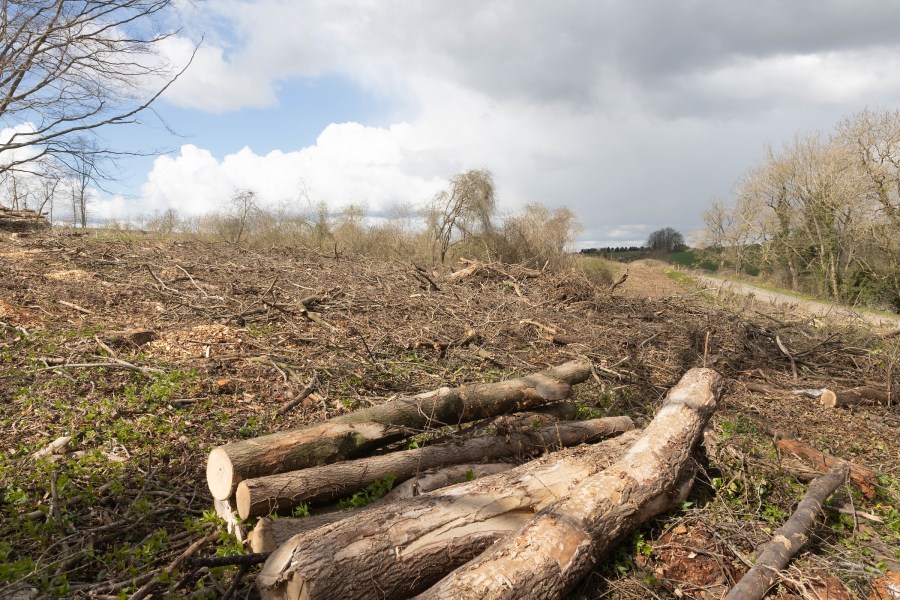Unlimited fines and prison sentences are among a package of new powers to be introduced as part of a crackdown on illegal tree felling in England.
The announcement was made by Defra and the Forestry Commission at the end of last month (23 December) and will result in changes to the Forestry Act 1967.
The key changes are:
- Felling trees without a felling licence, where one was required, will carry the penalty of an unlimited fine – up from the current limit of £2500 or twice the value of the trees felled;
- Failure to comply with a Forestry Commission Enforcement Notice and a subsequent court-ordered Restocking Order (meaning any trees felled must be replanted) will put offenders at risk of imprisonment, in addition to an unlimited fine;
- Restocking Notices and Enforcement Notices will be listed on the Local Land Charges Register, making them visible to prospective buyers of the land – potentially reducing the land’s value.
Changes explained
Defra says that by bringing greater transparency to the forestry enforcement process, these provisions will also clarify that when an Enforcement Notice is affected by a change in land ownership, the new land owner will inherit the responsibilities of an Enforcement Notice.
Furthermore, the new clauses will reclassify Restocking and Enforcement Notices as local land charges, which appear on the local land charge register. This register is routinely checked by conveyancers and will likely deter prospective buyers, removing some of the financial incentive to illegally fell trees.
Finally, the Forestry Commission will have powers to compel the landowner to provide information regarding who else has an interest in the land, including leaseholders and tenants. While the owner will be listed on HM Land Registry, demonstrating who occupies a woodland can be more challenging – these measures will improve visibility in this regard and help to better target any appropriate enforcement action.




